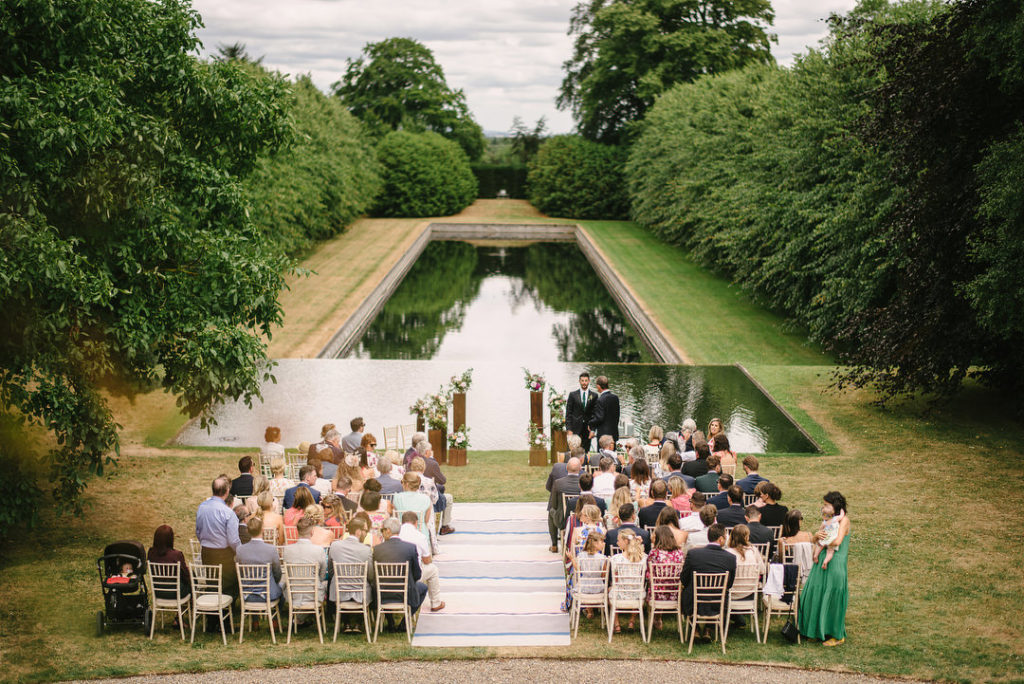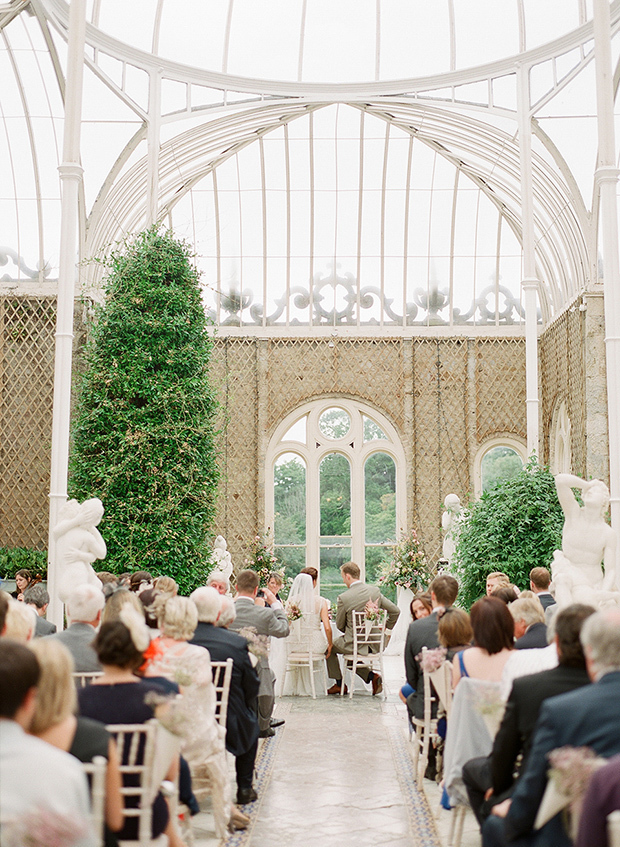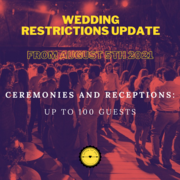How to Get Married in Ireland: An Easy Guide to Making it Legal.
Everything you need to know before getting hitched on Irish soil.

Getting married in Ireland is, like so many things, pretty straightforward once you know what you're doing. But given that most of us get married just the once, no one will blame you for not knowing the ins and outs! That's why we've put together a quick overview of the options for different types of wedding ceremony and the requirements for each method of getting married in Ireland. This should give you a good heads up on what's required to organise the kind of marriage ceremony you want, but do refer to the links provided for more in-depth information.

In general there are three types of legal wedding ceremonies in Ireland - religious (Catholic, Protestant, etc.), civil (done by a state representative - a HSE registrar), and a humanist or secular (non-religious) ceremony. Below, we've outlined the core points involved in each, with an emphasis on Catholic weddings as this is still the most common religious wedding ceremony in Ireland. In all cases, it's best to contact the offices you will be dealing with as soon as possible to get the ball rolling and ensure you have all your Ts crossed and Is dotted well in advance of the big day.

Catholic Wedding
Policies on conducting marriage ceremonies vary from church to church, so when you've decided on the church you would like to have your wedding in, it is essential to meet and discuss your request with the priest of the parish to ascertain whether your request can be granted. There's no guarantee on dates, whether the priest will perform the ceremony, or even allow you to have the wedding in the parish if you're from outside the area.It’s imperative to confirm the details - the church, the date, priest (who will be your registered solemniser) - a minimum of three months in advance.Arrange an appointment to give notice to the Civil Registrar of Marriage a minimum of three months in advance, in order to obtain a Marriage Registration Form (MRF).Essential documentation you will need: baptismal certificate, confirmation certificate and a letter of freedom from each parish you have lived in since the age of 18.You must complete a Marriage Preparation Course and provide a certificate to the priest in advance of the wedding.Further information is available on accord.ie.

Civil Ceremony Wedding
Meet with your registry office well in advance. You must notify them a minimum of three months in advance, but there is often a much longer lead time for certain popular dates and times.For civil ceremonies, you must register with the registrar of the county in which you intend to marry.If you wish to marry at a venue outside of the registry office, check that the venue, and the specific room you want the ceremony in, is licensed for civil ceremonies, or you will have to organise this. Registrars only perform ceremonies outside the registry office on prescribed days at certain times, and incur extra cost. Each county office has its own rules, check with your chosen office on the details.Civil ceremonies are performed by civil registrars from Monday to Friday only, never at weekends.Other Religious Ceremonies
All couples must give notice to the Civil Registrar of Marriage a minimum of three months in advance.You will need to contact the authorities of the religion in question and discuss any requirements they may have.Ensure that the officiant is on the register of solemnisers so that the marriage will be legally recognised.Further information:
Citizen's Information about Religious Ceremonies

Humanist Wedding Ceremonies
A humanist wedding ceremony is a secular celebration. The form of the ceremony is very flexible and led by the wishes of the couple and can include poetry, readings, vows, music and traditions according to your own preferences. Each celebrant will have templates that you can review and adapt and will assist in the development of your celebration.As with religious ceremonies, each couple must give notice to the Civil Registrar of Marriage a minimum of three months in advance.To discuss arranging a humanist wedding, you should contact a celebrant directly, details are provided on the Humanist Association website below.As with a civil ceremony, there are criteria on venues and locations for a humanist ceremony to be legally binding, chat to your celebrant about where you want to get married and they'll discuss how to make it work.Further information:
Humanism.ieList of Humanist celebrants by county
The Legalities of Getting Married in Ireland - Points to Note
Get the full checklist for marriage notification with the Civil Registrar hereYou can only be legally married by someone on the Register of Solomnisers - get the up-to-date list hereIf you hire a professional celebrant who is not registered, or ask a friend to conduct your ceremony, it won't be legal, and you'll need to have a separate legal ceremonyThe fee for a notification of marriage is €200.After your wedding, you can go to your nearest Registrar of Births, Marriages and Deaths to order copies of your marriage certificate, these cost €20 each.Same-sex marriage is legal in Ireland. To convert a civil partnership to a marriage, you still need to notify the Civil Registrar of your intention to marry - the fee for this is €50, rather than the usual €200.If you live abroad, you can find information on sending a postal notification of marriage here.Please note that the above information relates to processes and requirements in the Republic of Ireland. For information on the requirements in Northern Ireland, please refer to NI Direct's NI Direct's guidelines for marriage in Northern Ireland.
Source: One Fab Day



